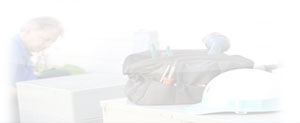Do-it-yourself Tips
An air conditioning or heating system does much more than simply cool or heat the air. They actually condition the air by removing dirt, dust, mold spores and pollens as the air is drawn through a filter. Your air conditioning system also lowers the humidity making the air much more comfortable at any temperature.
So running your air conditioning and heating system has great benefits. But it can account for up to 50% of the expense on your household budget.
Here are some energy saving tips that can save you a boat load of money and help you "GO GREEN" environmentally just by properly maintaining and carefully operating your air conditioning and heating system.
- Lower the temperature on your thermostat in the winter, or raise it in the summer, during the daytime when you're home. You could save up to 5% on energy usage for every degree you either lower the temperature in winter or raise it in the summer. Instead of making your system do all the work, wear an extra layer in the winter to help keep warm, or wear lighter, well ventilated clothes in the summer to help keep cool.
- Lower your thermostat to 65 degrees in the winter, or raise it to 80 degrees in the summer, while you're away from home. However, if you have a heat pump, only lower it by 2 or 3 degrees from your typical setting to avoid making the auxiliary heat kick on when you turn the thermostat back up.
- Even better, install a programmable thermostat to adjust temperature settings according to a preset schedule. This way you can warm up your house just before you wake up, or warm it up or it cool off before you get home.
- Repair leaky faucets. Even a small drip can be the equivalent of wasting a bath tub full of water each month. If it is hot water... even worse!
- Find and plug those leaks. Seal leaks between a door and its frame with weather stripping and fill leaks between window frame and wall with caulking.
- Seal light switches and electrical sockets with low-cost foam gaskets.
- Make sure your fireplace is properly vented to prevent your chimney from drawing heated air out of your house.
- Remove window air conditioning units in the winter time to prevent them from drafting in cold air.
- Insulate hot water pipes to prevent wasting heat to unconditioned spaces.
- Install low-flow showerheads.
- Lower the temperature on your water heater. By reducing it only a few degrees, you will lower your utility costs while still enjoying the hot water you want.
- Replace incandescent light bulbs with compact fluorescents (CFLs) to save energy and have them last six to 10 times longer.
- Install lighting controls like dimmers, timers or motion sensors.
- Install a ceiling fan in rooms you spend the most time in, with an option to reverse the air flow. Most models will allow you to set the direction the motor turns so you can blow the warm air back down into the living space.












